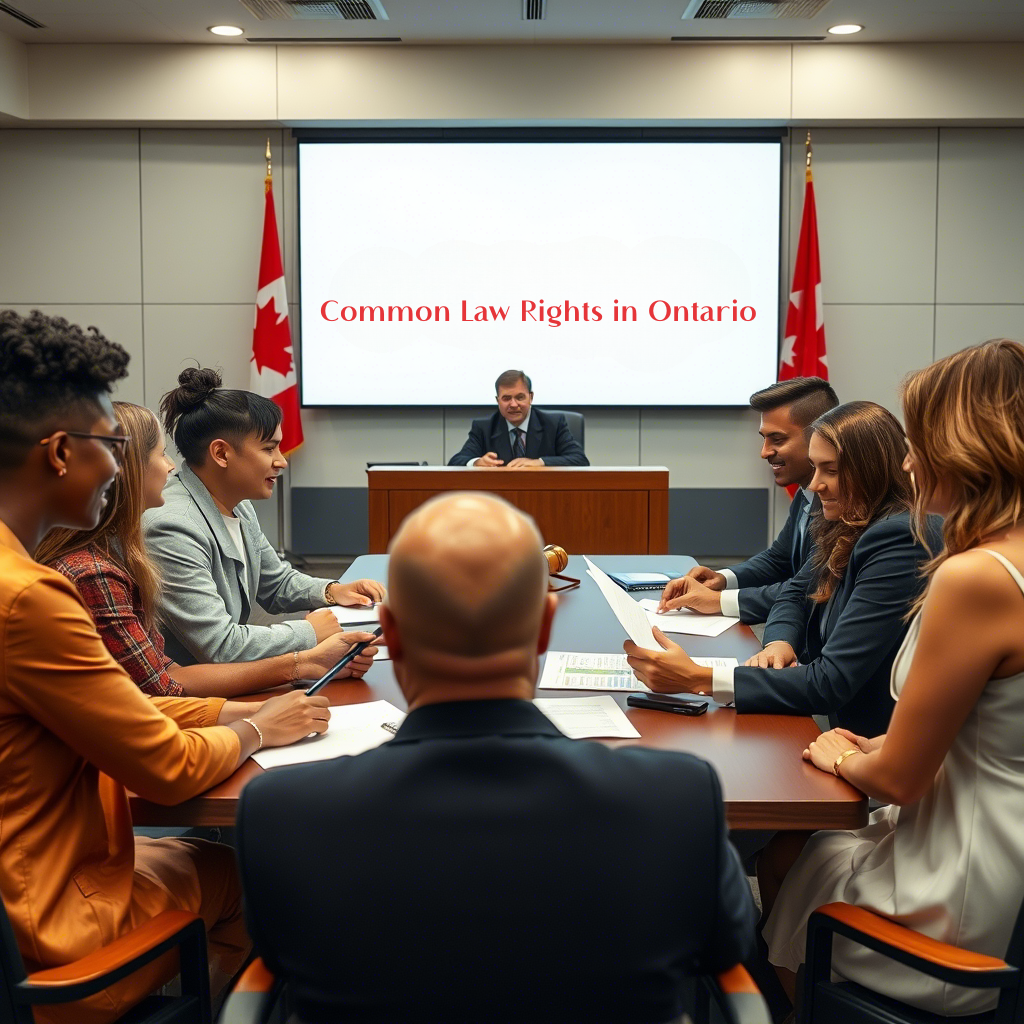Understanding Common Law Relationships in Ontario: Rights and Responsibilities
As family structures evolve, many couples in Ontario are choosing to live together without getting married. These partnerships, known as common law relationships, are becoming increasingly common. However, despite their popularity, confusion remains regarding the legal rights and responsibilities of common law partners.
This guide explains what qualifies as a common law relationship in Ontario and outlines your legal rights in terms of property, support, parenting, and estate matters.

What Is a Common Law Relationship in Ontario?
In Ontario, a common law relationship typically refers to a couple living together in a conjugal relationship without being legally married. Legal recognition depends on specific criteria:
- Under Ontario’s Family Law Act: Lived together continuously for at least 3 years, or have a child together in a permanent relationship.
- Under federal law (Income Tax Act or CPP): Cohabitation in a conjugal relationship for at least 1 year.
Legal Rights and Responsibilities in a Common Law Relationship
1. Spousal Support
Common law partners may qualify for spousal support if certain conditions are met. The court considers:
- Length of the relationship
- Roles of each partner
- Financial dependence or disadvantage
- Presence of children
Support may be arranged through negotiation, mediation, or court orders.
2. Property Division
Unlike married couples, common law partners do not automatically share property equally:
- No automatic right to the matrimonial home
- Each partner keeps assets in their own name
- Claims may be made for unjust enrichment or constructive trust
3. The Family Home
Without a legal agreement or court order, a common law partner not listed on the lease or title has no legal right to stay in the home after separation.
4. Parenting Rights and Responsibilities
Both common law and married parents share equal parenting responsibilities:
- Right to decision-making (custody) and parenting time
- Decisions made in the best interest of the child
- Equal obligation to pay child support
5. Estate Rights
Common law partners are not automatically entitled to inherit unless a valid will exists:
- Estate planning is essential
- Surviving partners can apply for support as a dependent
Protecting Your Rights in a Common Law Relationship
To avoid legal uncertainty and future disputes, consider the following:
- Cohabitation Agreement: Clarifies property, support, and financial matters
- Wills & Power of Attorney: Ensures your partner is protected
- Document Everything: Keep financial records and contributions
Conclusion
Common law relationships in Ontario offer flexibility, but they lack automatic legal protections granted by marriage. Knowing your rights can help you avoid conflict and protect your future.
If you’re in a common law relationship or considering separation, speak with a qualified family lawyer.
Need Advice on Common Law Rights in Ontario?
At IQBAL LAW, we help clients across Ontario understand their legal rights in common law relationships. Whether you’re planning ahead or facing a breakup, our experienced team is here to support you.
📞 Contact us today for a confidential consultation.